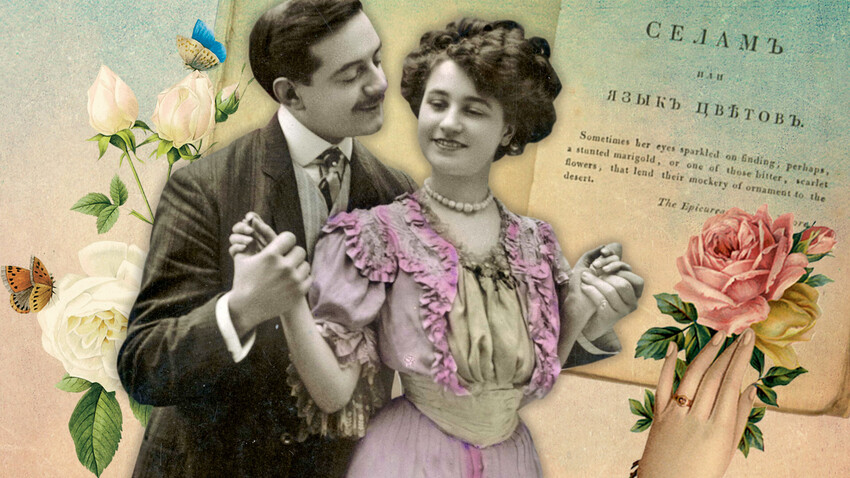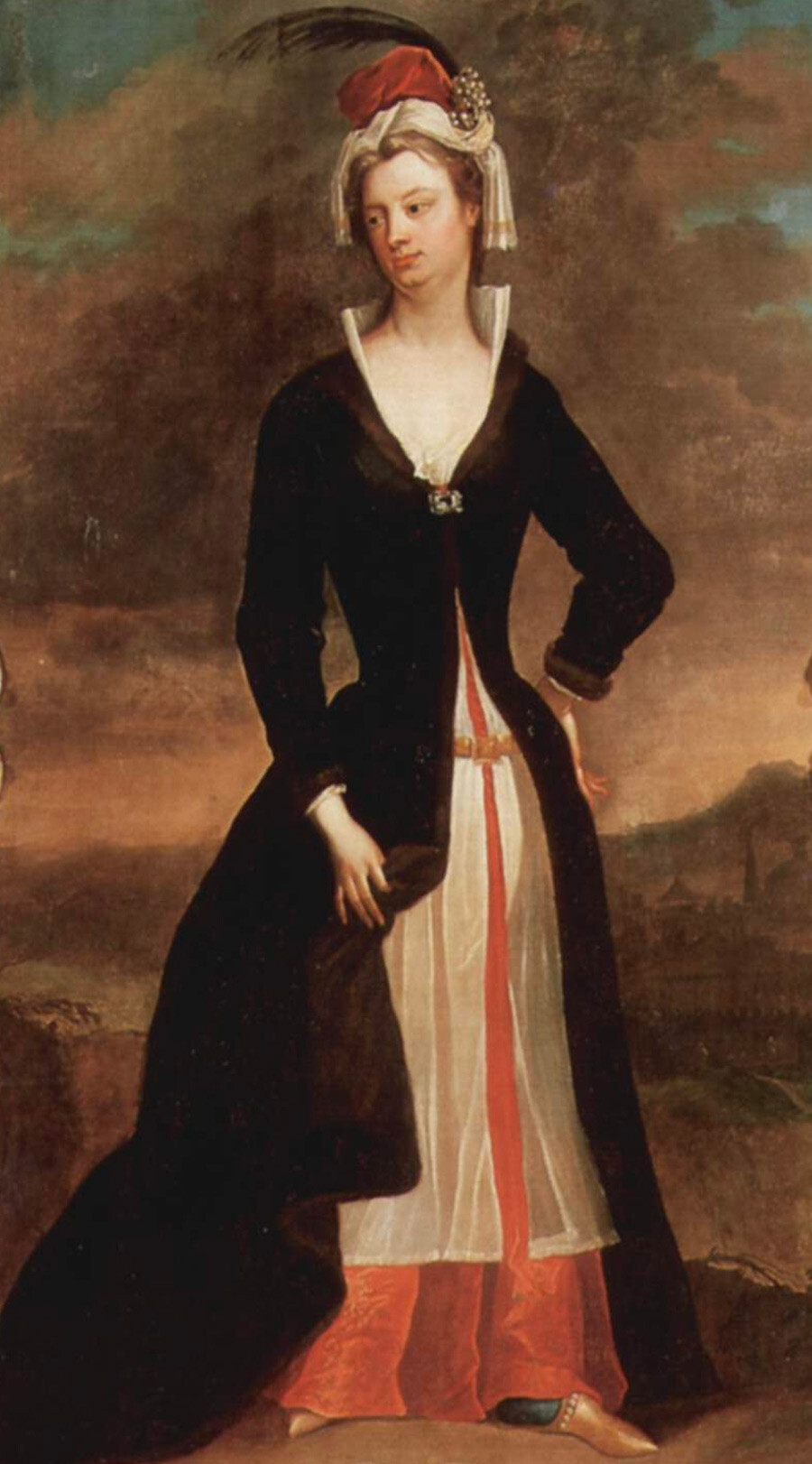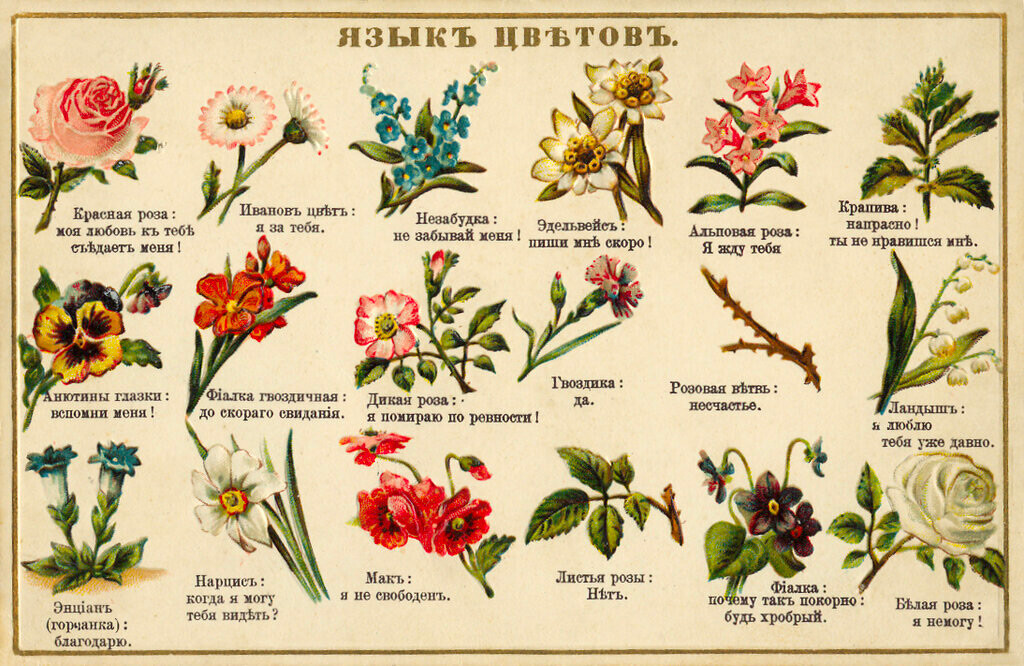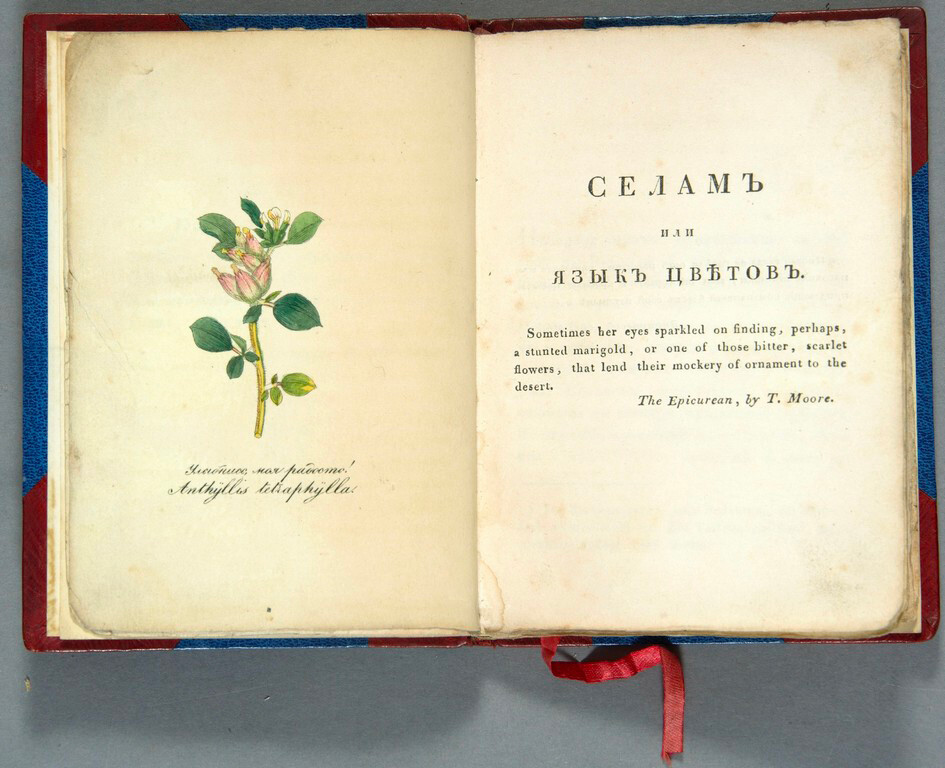
"She loves me – She loves me not." Almost everyone has said these words while breaking the petals of a daisy. But when you did that, did you realize that you were performing the simplest love fortune-telling on flowers?
Rituals with chamomile were known in ancient Egypt, where it was recognized as a divine flower. Chamomile is depicted on the sandals of King Tutankhamun, and its oil was sprinkled on the bodies of pharaohs before burial.
But this is just one example. In Central and Middle Asia, flowers have always played a major role in cult rituals and everyday celebrations. From there this fashion spread to Europe, though much later, in the 18th century.

Mary Wortley Montagu by Charles Jervas, after 1716
National Gallery of IrelandIn 1716-1718, Lady Mary Wortley Montagu, an English aristocrat and poet, lived in Istanbul with her husband, Britain's ambassador to the Ottoman Empire. Her letters sent home were published in London in 1763 and immediately became very popular. The European society of those times was fascinated by the Ottoman Empire and everything Turkish – this fashion subsequently was called Turquerie. And on this wave of popularity, the "language of colors" described in Lady Montagu's letters became famous.
"There is no paint, flower, weed, fruit, grass, herb, stone, bird's feather that does not have a verse corresponding to it, and you can quarrel, scold, send letters of passion, friendship, courtesy, or exchange news without getting your fingers dirty," wrote Lady Montagu, recalling the Turkish women's game, "selam", in which noble ladies sent each other objects with rhyming names – a kind of slow game of Bouts-Rimés.

Selam, or Language of Flowers' by Dmitry Oznobishin, 1830
Public domainColors were given many symbolic meanings in this game. It was the ability to encrypt messages that delighted the British. The closed and prim English society loved secret codes and ciphers, which allowed them to communicate on private topics without attracting attention and to flirt without saying a word.
Immediately after the publication of Lady Montagu's letters, "dictionaries of flowers" began to appear in Europe, which explained the metaphorical meanings of different kinds of flowers. In Russia, these dictionaries were first translated from foreign languages, and the meanings were handwritten into albums.

Dmitry Oznobishin
Public domainIn 1830, the famous poet Dmitry Oznobishin published the book Selam, or Language of Flowers. In the preface he wrote that the basis for the publication was a translation of the German book Language of Flowers in 1823. From that moment Russian ladies and cavaliers had their own vocabulary and could put together such bouquets-messages.

The first pages of 'Selam, or Language of Flowers' by Dmitry Oznobishin, 1830
State Pushkin Museum. I. N. Rozanov library of Russian poetryDmitry Oznobishin described many meanings of flowers in his book. We cite the most understandable and figurative of them.
Apricot branch – You enchant me with your beautiful soul.
Acacia – Friendship heals the wounds of love.
Aloe – You've made me sad.
Aster – Do you know how to love all the time?
Basil – Only up close can you recognize me.
Balsamine – You shine in front of everyone like a queen.
Birch branch – Follow me and we'll be happy.
Birch Leaf – Rely on me.
Ivy – Forever and firmly bound to what I once chose.
Hemlock – The divine power of love does not fear death.
Hawthorn – I love it when you sing.
Elderberry – You don't recognize me.
Black elderberry – I'm yours.
Widow's flower – I'm sad.
Heather – I'll see you again.
Grape Leaf – Love and enjoy.
Cherry Blossom – My intentions are pure.
Thistle – You have insulted me.
Elm Leaf – Don't be discouraged.
Gardenia – When you pass me by, my heart rejoices.
Carnation (white) – Believe me.
Carnation (blush) – My love languishes for you.
Dahlia – May I come near the proud?
Geranium – I need to see you secretly and talk to you.
Sweet pea – I live for you.
Hydrangea – Cruel one! How could you forget me so soon?
Oregano – Everything is happy for my well-being.
St. John's wort – Trust my love
Iris – Why have you disturbed the peace of my heart?
Cactus – I have been happy with you only a little.
Why are you so cold and unfeeling?
Cypress – When death shall end my hopeless love, shed a tear on my grave.
Bells – When will we have time to talk tonight?
Spike of wheat – I care. Soon you’ll be mine.
Spike of rye – Lucky people who love and are mutually loved.
Nettle – Beware, I'm a maiden.
Lavender – I don't understand you.
Lily of the valley – I’ve long secretly loved you.
White lily – May your heart be pure and blameless!
Onion – Why do you cry when I am so close to you?
Garden poppy – The memory of you will be inseparable from me forever, both in happiness and in misfortune.
Raspberry – Accept this token of my esteem.
Mother and Stepmother – What should I expect, love or coldness?
Moss – I will mourn in the ruins of the past, keeping always constant, and in spite of the vicissitudes of time.
Narcissus yellow – I look with envious eyes at those around you.
Nasturtium – Be active.
Forget-me-nots – She'll tell you everything for me.
Dandelions – I feel at home everywhere.
Fern – Only a cordial union can give lasting pleasure.
Parsley – Be modest
Terry peony – How clueless you are.
Sunflower – Even love cannot overcome your pride!
Turnip – The storm of life has passed!
Rose white – Thou despisest my love; I am dying.
Yellow rose – Is your love sincere?
Chinese rose – You're pretending.
Red rose – You've won my heart!
Pink branch – No!
Pink leaf – Yes!
Rosemary – Soon I'll walk you down the aisle.
Chamomile – One kind look from you will comfort me in my misery.
Dear readers,
Our website and social media accounts are under threat of being restricted or banned, due to the current circumstances. So, to keep up with our latest content, simply do the following:
If using any of Russia Beyond's content, partly or in full, always provide an active hyperlink to the original material.
Subscribe
to our newsletter!
Get the week's best stories straight to your inbox